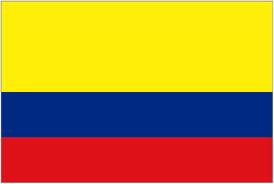 PIJIP Research Paper no. 2013-03
PIJIP Research Paper no. 2013-03
Authors: Glushko-Samuelson Intellectual Property Clinic in Collaboration with Andrés Izquierdo and Fundación Karisma
Introduction: In April 2011, Bill 201—known as “Ley Lleras 1.0”—was introduced by the Colombian legislature to implement certain provisions in the US-Colombia Free Trade Agreement (FTA). The law placed strong burdens on Internet Service Providers (ISPs) to police the Internet and would have allowed ISPs to collect information about users, including which websites they frequent, what content they access or post, and with whom they communicate. It also permitted ISPs to deactivate subscribers’ Internet access without a court order verifying that the subscriber had posted or accessed copyright-infringing material.
Fortunately, Ley Lleras 1.0 was archived in November 2011 after civil society groups harshly criticized it as shattering the notion of privacy and standing as a barrier to the free access of information. However, this attempt to pass an overly restrictive ISP law reveals how the Colombian legislature has not fully considered the impact such laws could have on the fundamental rights to expression, information, privacy, and due process. Public discussion and debate are necessary so that future ISP liability laws will not violate these precious rights for all Colombians.
Ley Lleras 1.0 developed out of Colombia’s attempts to foster more positive relationships with other democratic nations worldwide. To further strengthen ties between Colombia and the United States, these two countries entered into an FTA in 2006. This FTA emphasized market access for agricultural products and removed barriers between Colombia and its largest trading partner, which made selling goods more profitable and assisted the Colombia’s continued development.
The FTA included flexible language that gave Colombia wide discretion to create laws implementing the FTA in ways that best serve Colombians’ needs. However, when the Colombian legislature attempted to pass two controversial and restrictive laws, it failed to take advantage of the flexibility afforded by the FTA in a way that maximized the benefits for all Colombians.
The FTA requires Colombia to provide creators of original works control over their works, consistent with international intellectual property regimes. To ensure protection, Article 16.11.29 of the FTA empowers Colombia to implement laws relating to the liability of ISPs who host content that violates the rights of these creators. Those FTA provisions merely require that the Colombian legislature create a regime that incentivizes ISPs to cooperate with copyright owners by limiting the ISPs’ potential liability under prescribed circumstances. These requirements include implementing a policy providing instructions to take down infringing content and to terminate the Internet accounts of repeat offenders. Importantly, the FTA prohibits conditioning eligibility for these ISP “safe harbors” by requiring that the ISPs monitor users or affirmatively seek facts that show its users could be infringing copyright.
One particular “safe harbor” allows ISPs to remove content in good faith that violates authors’ rights based on “claimed or apparent infringement.” This is known as a “notice and takedown” regime, which is currently used by the U.S.
The FTA does not set out a time limit or manner in which the allegedly infringing material need be removed in order for the ISP to claim the safe harbor. Rather, the FTA only requires that: (a) copyright owners provide ISPs with effective written notice, identifying the materials that owners claim infringe their copyrights before any process to remove the material starts; and that (b) users who have had their content removed be allowed to provide ISPs with “counter-notification,” claiming that the removal was a mistake or was due to misidentification. Additionally, a side letter to the agreement dated November 22, 2006, clarifies that the copyright owner claiming infringement need only have a “good faith belief” that the material is infringing. Similarly, once the content is removed, the side letter allows the person whose content has been removed to notify the ISP that he has a “good faith belief” his material was removed in error. Neither the text of the FTA nor the side letter requires that the ISP automatically remove any material from their servers upon receipt of an infringement claim from a copyright owner.
The FTA does require that Colombia establish an administrative or judicial procedure that allows the copyright owner to “expeditiously” obtain information from the ISP identifying the infringer under Article 16.11.29(b)(xi). However, this procedure does not affect the ISP’s ability to claim “safe harbor.”
Because Colombia wishes to comply with the FTA, it is highly likely the legislature will soon introduce another bill to implement the ISP provisions. To avoid a similar roadblock and to ensure the FTA is implemented in a way that maximizes the benefits for all Colombians, the Colombian Legislature must create laws that honor the text of the FTA and respect the rights of all Colombians.
Click here to download the full paper.




